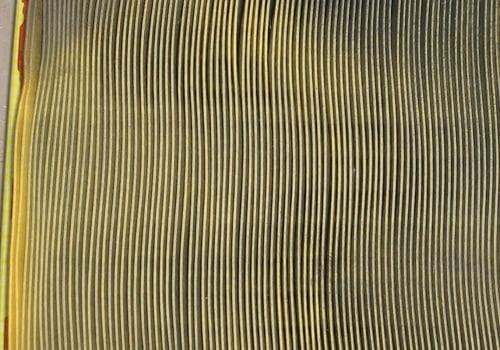It's important to keep your air conditioning filter clean and in good condition. A dirty filter can cause your HVAC system to work harder, leading to higher energy bills and decreased efficiency. But how do you know when it's time to replace the filter? The most obvious sign that you need a new air filter is if the one you have is gray and dirty. If it looks dusty or grimy, it's time for a change.
You can also check the back of the unit; if it's too hot, that's a sign that the filter needs to be replaced. Additionally, if there is more dust near the ventilation grilles, that's another indication that the filter needs to be changed. It's recommended to take out the air filter and check it out at least once every two months. If it looks dirty or dusty, change it.
Generally, most air filter manufacturers and HVAC companies suggest changing your air filter every 90 days or 3 months. Air filters typically have a MERV (Minimum Efficiency Report Value) that determines the type and size of contaminants against which the filter will act. According to the Department of Energy, running your heating and cooling system with a clogged air filter can cause it to consume 5 to 15 percent more energy than it would if the filter were clean. In general, filters with a MERV 16 rating or lower are considered HVAC system grade filters for residential, commercial, and general hospital use.
A clogged air filter will cause your HVAC system to work overtime because you have to use more force to push the same amount of air through the filter. Filters with higher MERV ratings trap small particles more effectively than filters with lower MERV ratings. It's a general recommendation to change your home's air filter every 30 days when using less expensive fiberglass filters. The signs below usually appear when you are too late for a filter change, so it's best to change the filter before you get to this point.
When you remove the air filter from the air handling unit, if you hold it close to a light source, you can see if the filter is dirty or clogged; if you can't see the light through the filter, it's definitely time to change it. The only type of filters that trap allergens and spores are HEPA, or high-energy particulate air filters. As a general rule, you'll want to replace your home's pleated air filters and heating filters every 90 days. The longer the filter is in place, the more dirt, dust and allergens are trapped, clogging the filter and decreasing its efficiency.



